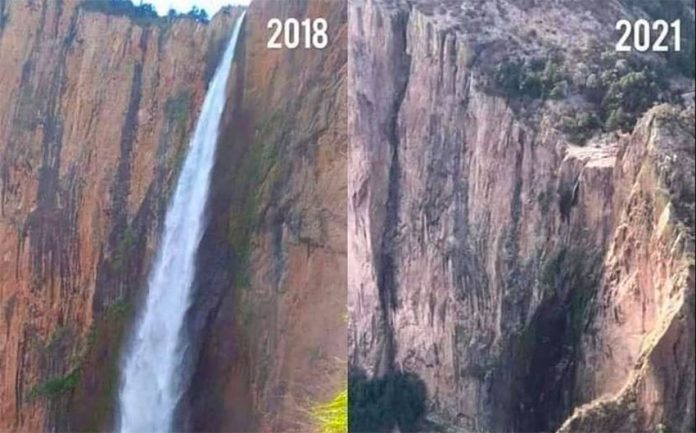A waterfall in the Copper Canyon in Ocampo, Chihuahua, has dried up due to the severe drought affecting the area.
The 246-meter Basaseachi waterfall — the second highest in Mexico — is normally a tourist attraction, but has been reduced to a trickle of water falling onto the walls of the canyon.
The nationwide drought has affected all municipalities in Chihuahua this year, where crop losses of up to 90% have been recorded. Reservoirs have been at exceptionally low levels, sparking predictions of an economic and social crisis.
Residents of Ocampo said there has been alarm about the waterfall since April. They name an exterior cause: two mines which divert the river to serve their extraction activities.
Local councillor Javier Ruiz Acuña said the fate of the waterfall is the simple consequence of the nationwide drought and dismissed other theories. He added that the waterfall had dried up in other periods of water scarcity, and said that once the rain returned the water would run again.
Ocampo residents said the waterfall usually runs at full strength in August.
